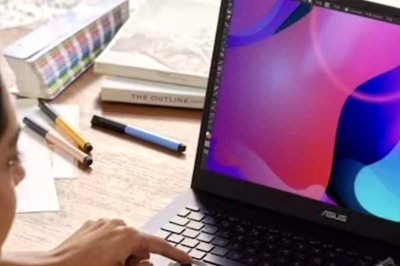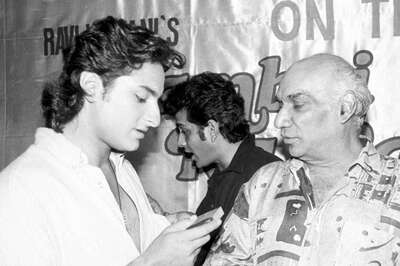
views
New Delhi: This Diwali season Indian shoppers spent around Rs 19,000 crore on online shopping – a sector that grew six times between September 20 and October 19, 2017. Over the last year, the sector has seen a 45% growth in sales.
All, though, is not as rosy as it seems. A News18 investigation has found that spurious manufacturers and counterfeit sellers are making hay using loopholes in the Information Technology Act. Meanwhile, online retailers are shrugging off responsibility by claiming to be intermediaries.
Online retailers attract customers through discounts and their ‘mega deals’. Have you then ever considered to check if the products are genuine?
The investigation carried out by a team of brand investigators has revealed that more than 60% of the sports goods available online are counterfeit. In the case of apparels, at least 40% of the listings are by duplicate manufacturers.
News18 accompanied brand investigators on one such raid to know the reality.
With the help of local police, a raid was conducted in Brahmpuri area of Meerut and a large number of fake products were recovered. These fake products, mostly sports goods, were being sold on popular e-commerce websites like Flipkart, Shopclues and Snapdeal.
The seller, Mohit Bandhu, later confessed that these COSCO and NIVIA balls that he was selling online for huge discounts were actually counterfeit. When questioned by Meerut Police, Bandhu retorted, “You tell me whether those Nike sweaters sold in the local markets are real or fake."
The Police have registered an FIR against him and retrieved the counterfeit sports goods.
The seller accepted that these fake balls were brought from nearby places and sold online. Originally bought for Rs 170-200, these fake products are then sold online for Rs 450-500.
To lure buyers, the MRP is shown to be Rs 900-1000 and then offered at a discount of 50-60%.
Shopclues issued a statement stating that they have ‘zero tolerance for counterfeit/fake products’.
“We coordinate with brands on a regular basis to help keep the site clean of counterfeits. Through our ShopClues intellectual property protection programme or SCIPP, we make it conducive to brands and rights owners to reach out to us and to protect their IP. Our robust system under the ShopClues Surety programme also ensures that our merchants sell genuine products. We have a zero tolerance for counterfeit/fake products," said a spokesperson from ShopClues.
Flipkart, in a statement, clarified that they do stringent background and reference checks and that sellers are listed on the website only after satisfactory conclusion of verification procedures.
Flipkart also maintained that its tamper-proof packaging ensures there is no pilferage.
“Flipkart observes a zero tolerance policy on incidents where sellers are found violating customer trust and quality guidelines. We conduct our business with the highest standards of integrity and are fully compliant with all rules of the land. Flipkart also runs customer awareness programs that educate and caution customers against falling prey to fake products or fraudulent offers," said spokesperson, Flipkart.
Snapdeal too, in a statement, denied any wrongdoing.
“Snapdeal complies with the due diligence requirements as specified per applicable laws. The “Terms of Use" and “Report Abuse & Takedown Policy" for the marketplace are framed and implemented in accordance. Any complaints regarding counterfeit products / IPR infringement are promptly acted upon, including disabling the product and / or the seller from using the platform," said spokesperson, Snapdeal.
Taking note of the investigation into counterfeit goods being sold online, consumer affairs minister Ram Vilas Paswan said that his ministry is waiting for complaint to be filed. The minister added that the government is bringing in a bill to safeguard the rights of online shoppers.
“The government is strongly against all those who infringe copyright and sell fake products," said Paswan.
Brand Intelligence entrepreneur, Dhirendra Singh, when asked about the difference between an original sports ball and a fake one, said, “The original product comes in a cardboard box and there is a hologram on it. These spurious products don’t have a guarantee, neither any hologram."
So how do you try to protect yourself from buying a fake product? “Always go through the reviews and product rating. The more the reviews, the better," said Singh.
Meanwhile, Cyber Law specialist Pawan Duggal claims that the firms are using loopholes in section 79 of the Information Technology Act. The act he feels has been further diluted by a recent Supreme Court order, which struck down Section 66A of the act and a high-level committee formed thereafter suggested amendments to it.
Dhirendra maintains that these companies are using the online space for money laundering and cheating on GST. He says the absence of a clear civil option is forcing them to raid the sellers and go for criminal action.
This reiterates the age-old saying, “If (a deal) appears too good to be true, it probably is false."
Read all the Latest India News here




















Comments
0 comment